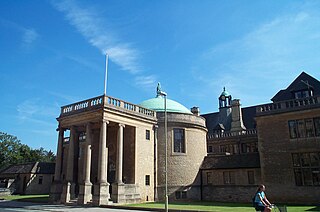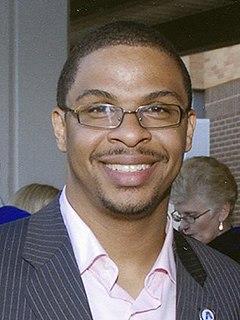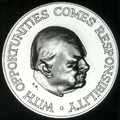Related Research Articles

The Rhodes Scholarship is an international postgraduate award for students to study at the University of Oxford. Established in 1902, it is the oldest graduate scholarship in the world. It is considered among the world's most prestigious international scholarship programs. Its founder, Cecil John Rhodes, wanted to promote unity among English-speaking nations and instill a sense of civic-minded leadership and moral fortitude in future leaders, irrespective of their chosen career paths. Initially restricted to male applicants from countries that are today within the Commonwealth, Germany and the United States, the scholarship is now open to applicants from all backgrounds and genders around the world. Since its creation, controversy has surrounded its initial exclusion of women, its historical failure to select black Africans, and Cecil Rhodes's own standing as a British imperialist.

A scholarship is a form of financial aid awarded to students to further education. Scholarships are awarded based upon various criteria, such as academic merit, diversity and inclusion, athletic skill, and financial need. Scholarship criteria usually reflect the values and goals of the donor of the award. While scholarship recipients are not required to repay scholarships, the awards may require that the recipient continue to meet certain requirements during their period of support, such maintaining a minimum grade point average or engaging in a certain activity. Scholarships may provide a monetary award, an in-kind award, or a combination.

Harvard College is the undergraduate college of Harvard University, an Ivy League research university in Cambridge, Massachusetts. Founded in 1636, Harvard College is the original school of Harvard University, the oldest institution of higher learning in the United States and among the most prestigious in the world.

The Fulbright Program, including the Fulbright–Hays Program, is one of several United States Cultural Exchange Programs with the goal to improve intercultural relations, cultural diplomacy, and intercultural competence between the people of the United States and other countries through the exchange of persons, knowledge, and skills. Via the program, competitively-selected American citizens including students, scholars, teachers, professionals, scientists, and artists may receive scholarships or grants to study, conduct research, teach, or exercise their talents abroad; and citizens of other countries may qualify to do the same in the United States. The program was founded by United States Senator J. William Fulbright in 1946 and is considered to be one of the most widely recognized and prestigious scholarships in the world. The program provides approximately 8,000 grants annually – roughly 1,600 to U.S. students, 1,200 to U.S. scholars, 4,000 to foreign students, 900 to foreign visiting scholars, and several hundred to teachers and professionals.

A graduate school is a school that awards advanced academic degrees with the general requirement that students must have earned a previous undergraduate (bachelor's) degree. A distinction is typically made between graduate schools and professional schools, which offer specialized advanced degrees in professional fields such as medicine, nursing, business, engineering, speech–language pathology, or law. The distinction between graduate schools and professional schools is not absolute since various professional schools offer graduate degrees and vice versa.
A fellow is a concept whose exact meaning depends on context. In learned or professional societies, it refers to a privileged member who is specially elected in recognition of their work and achievements. Within the context of higher educational institutions, a fellow can be a member of a highly ranked group of teachers at a particular college or university or a member of the governing body in some universities ; it can also be a specially selected postgraduate student who has been appointed to a post granting a stipend, research facilities and other privileges for a fixed period in order to undertake some advanced study or research, often in return for teaching services. In the context of research and development-intensive large companies or corporations, the title "fellow" is sometimes given to a small number of senior scientists and engineers. In the context of medical education in North America, a fellow is a physician who is undergoing a supervised, sub-specialty medical training (fellowship) after having completed a specialty training program (residency).

The Bill and Melinda Gates Foundation established the Gates Cambridge Scholarships in 2000 with a $210 million donation to support outstanding graduate students' study at the University of Cambridge. The scholarship is one of the most competitive and prestigious in the world, with around 1.3% of applicants receiving an award in recent years.

The Marshall Scholarship is a postgraduate scholarship for "intellectually distinguished young Americans [and] their country's future leaders" to study at any university in the United Kingdom. It is widely considered one of the most prestigious scholarships for U.S. citizens, and along with the Fulbright Scholarship, it is the only broadly available scholarship available to Americans to study at any university in the United Kingdom.

Roland Gerhard Fryer Jr. is an American economist and professor at Harvard University. Following a difficult childhood, Fryer earned an athletic scholarship to the University of Texas at Arlington, but once there chose to concentrate instead on academics. Graduating cum laude in 2+1⁄2 years, he went on to receive a Ph.D. in economics from Pennsylvania State University in 2002 and completed postdoctoral work at the University of Chicago with Gary Becker. He joined the faculty of Harvard University and rapidly rose through the academic ranks; in 2007, at age 30, he became the second-youngest professor, and the youngest African-American, ever to be awarded tenure at Harvard. He has received numerous awards, including a MacArthur Fellowship in 2011 and the John Bates Clark Medal in 2015.

The Churchill Scholarship is awarded by the Winston Churchill Foundation of the United States to graduates of the more than one hundred colleges and universities invited to participate in the Churchill Scholarship Program, for the pursuit of research and study in the physical and natural sciences, mathematics, engineering, for one year at Churchill College at the University of Cambridge.
The Harry S. Truman Scholarship is the premier graduate fellowship in the United States for public service leadership. It is a federally funded scholarship granted to U.S. undergraduate students for demonstrated leadership potential, academic excellence, and a commitment to public service. It is administered by the Harry S. Truman Scholarship Foundation, an independent federal agency based in Washington, D.C.

Winston Churchill Memorial Trusts (WCMT) are three independent but related living memorials to Sir Winston Churchill, based in the United Kingdom, Australia, and New Zealand. They exist for the purpose of administering Churchill Fellowships, also known as Churchill Travelling Fellowships, to provide an opportunity for applicants to travel overseas to conduct research in their chosen fields.
The Thouron Award is a prestigious postgraduate scholarship established in 1960 by Sir John R.H. Thouron, K.B.E., and Esther du Pont Thouron. It was created to strengthen the "special relationship" between the United States and the United Kingdom through educational exchange between British universities and the University of Pennsylvania. Through the programme the Thourons sought to nourish and develop Anglo-American friendship by ensuring that, in the years to come, a growing number of the leading citizens of these two countries would have a thorough understanding of their trans-Atlantic neighbours. In the years since its founding, the Thouron Award has sponsored programs of graduate study for more than 650 fellows, known as Thouron Scholars.
The National Science Foundation Graduate Research Fellowship Program (NSF-GRFP) is a prestigious grant awarded annually by the National Science Foundation to approximately 2,000 students pursuing research-based Master's and doctoral degrees in the natural, social, and engineering sciences at US institutions. As of 2019, the fellowship provides an honorarium of $12,000 to be placed towards the cost of tuition and fees at the university the fellow attends; it also awards the student directly with an annual $34,000 stipend for three years, leading to an anticipated total award amount of $138,000.
The Critical Language Scholarship (CLS) Program is a United States Department of State cultural and educational exchange program which offers approximately 600 undergraduate or graduate level students from the United States the opportunity to participate in an intensive language study abroad. This nationally competitive program funds students who study one of the 15 critical need foreign languages, and is part of the National Security Language Initiative. The 15 critical languages include Arabic, Azerbaijani, Bengali, Chinese, Hindi, Indonesian, Japanese, Korean, Persian, Portuguese, Punjabi, Russian, Swahili, Turkish and Urdu. With an acceptance rate of less than 10%, the Critical Language Scholarship is one of the most competitive scholarships in the U.S. and the most prestigious language program for U.S. citizens.
The Fulbright Commission in Iceland is an inter-governmental organization that administers the Fulbright Program in Iceland by offering Fulbright grants to students and scholars. It is located in the center of Iceland's capital, Reykjavík. The Commission also administers nominations for the Frank Boas Scholarship for International Legal Studies at the Harvard Law School and the Cobb Family Fellowship for Icelandic citizens. The Commission also serves as the only Education USA advising center in Iceland, providing impartial advice on U.S. education opportunities.
The Paul & Daisy Soros Fellowships for New Americans, founded by Paul Soros and Daisy Soros in 1997, is a United States postgraduate fellowship for immigrants and children of immigrants. In 2021, the Fellowship received 2,445 applications and awarded 30 Fellowships for a selection rate of 1.2%. Each Fellow receives up to $90,000 in funding toward their graduate education, which can be in any field and at any university at the US. The Fellowship, which honors the contributions of immigrants to the US, was founded in 1997. In 2010, the couple had contributed a total of $75 million to the organization's charitable trust.
Knight-Hennessy Scholars is an international graduate-level scholarship program for study at Stanford University. Established in 2016, the program prepares students to take leadership roles in finding creative solutions to complex global issues. Scholars receive full funding to pursue any graduate degree at Stanford and have additional opportunities for leadership training, mentorship, and experiential learning across multiple disciplines.

The Thomas J. Watson Foundation is a charitable trust formed 1961 in honor of former chairman and CEO of IBM, Thomas J. Watson. The Foundation's stated vision is to empower students “to expand their vision, test and develop their potential, and gain confidence and perspective to do so for others.” The Watson Foundation operates two programs, the Thomas J. Watson Fellowship and the Jeannette K. Watson Fellowship.

The Department of Defense National Defense Science and Engineering Graduate Fellowship is a prestigious fellowship awarded annually to U.S. citizens pursuing doctoral degrees in science and engineering disciplines. The highly competitive fellowship is sponsored by the U.S. Navy, U.S. Space Force, U.S. Air Force, and U.S. Army. These agencies make the final selection of the fellows. National Defense Fellows must be enrolled in research-based doctoral degrees aligned with the goals of the U.S. Department of Defense as outlined in a specific solicitation for research proposals, known as a Broad Agency Announcement (BAA). Qualifying doctoral programs must be based in the United States. The NDSEG Fellowship lasts for three years, paying for full tuition and all mandatory fees in that period. The fellowship also awards the recipient a monthly stipend, totaling $40,800 annually, a $5,000 travel budget for the 3-year tenure, and a $1,400 annual health insurance budget. National Defense Fellows have no military service obligation upon completion of the program. In the 2020-2021 award cycle, 159 fellows were chosen from a pool of over 7,942 applicants, for a selection rate of roughly 2%.